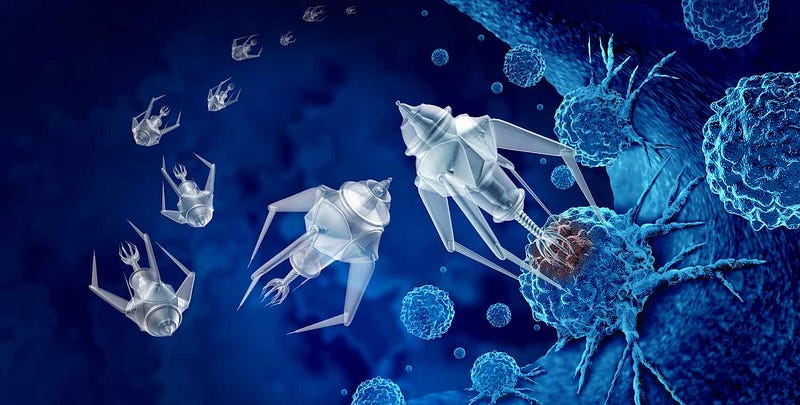Exploring the Revolutionary World of Nanotechnology
Written on
Understanding the Essence of Nanotechnology
Nanotechnology focuses on manipulating matter at the nanoscale, which sits at the intersection of science and engineering. The term "nano" refers to one billionth of a meter, and materials at this scale can exhibit vastly different properties compared to their macroscopic counterparts. This rapidly evolving discipline has paved the way for groundbreaking innovations that affect numerous industries such as electronics, materials science, energy, and healthcare.
The Fundamentals of Nanotechnology
The field encompasses the manipulation, control, and utilization of materials and devices that typically measure between 1 to 100 nanometers. At this scale, quantum effects become prominent, leading to unique chemical, biological, and physical properties that researchers can harness for various applications. The ability to manipulate materials at this scale has unlocked unprecedented opportunities.
Applications in Medicine
One of the most promising aspects of nanotechnology is its potential to revolutionize medicine. The application of nanoscale materials in imaging, drug delivery, and diagnostics falls under the umbrella of nanomedicine. By engineering nanoparticles to specifically target certain cells or tissues, medical treatments can be delivered with enhanced precision and effectiveness. Moreover, nanoscale devices may enable early disease detection through highly sensitive diagnostic tools.

By encapsulating therapeutic agents in nanoparticles, these drugs can be directed to their intended sites while being shielded from degradation. This targeted approach minimizes side effects and enhances the therapeutic effectiveness of medications. Additionally, researchers are exploring nanoscale biosensors to monitor health parameters continuously.
Nanotechnology in Electronics and NEMS
Advancements in nanotechnology have greatly benefited the electronics sector. As devices shrink to nanoscale dimensions, both computing power and energy consumption are optimized. Nanoscale transistors, memory devices, and sensors play crucial roles in developing smaller, faster, and more energy-efficient electronic devices.
Nanoelectromechanical systems (NEMS) leverage the unique mechanical properties of nanomaterials. These systems, which are smaller than microelectromechanical systems (MEMS), have numerous applications, including switches, resonators, sensors, and actuators, opening new paths for device miniaturization and enhanced performance.
Energy and Environmental Solutions
Nanotechnology holds significant promise for addressing energy and environmental challenges. In renewable energy, nanomaterials can improve the efficiency of energy storage devices and solar cells. The use of nanocatalysts can also make fuel and chemical production processes more sustainable and efficient.
Furthermore, nanotechnology plays a vital role in environmental monitoring and remediation. Nanosensors can detect particulates at extremely low concentrations, facilitating accurate monitoring of air and water quality. Nanomaterials have the potential to eliminate pollutants and pathogens from water sources.
Ethical Considerations in Nanotechnology
Despite its vast potential, the development of nanotechnology brings forth ethical considerations and challenges. Safety concerns regarding the potential toxicity of certain nanomaterials and their environmental impact warrant careful scrutiny. The ethical development and application of nanotechnologies must be prioritized to ensure they benefit society at large while minimizing unintended consequences.
In Conclusion
At the forefront of scientific and technological innovation, nanotechnology offers unprecedented opportunities across various fields. As researchers continue to explore the potential of the nanoscale, the influence of nanotechnology on medicine, electronics, energy, and the environment is set to reshape our understanding and problem-solving approaches. The exploration of nanotechnology exemplifies the transformative power of science and engineering at the smallest scales.
Understanding Nanotechnology Through Video
To gain deeper insights into nanotechnology, check out the following videos:
What is nanotechnology? - YouTube
This video provides an overview of nanotechnology, explaining its fundamentals and applications across various fields.
Nanotechnology is not simply about making things smaller | Noushin Nasiri | TEDxMacquarieUniversity - YouTube
In this TEDx talk, the speaker discusses how nanotechnology goes beyond just miniaturization and explores its broader implications.